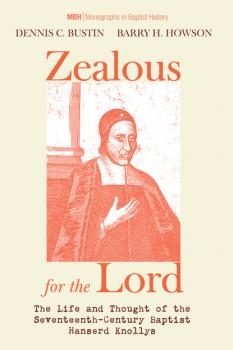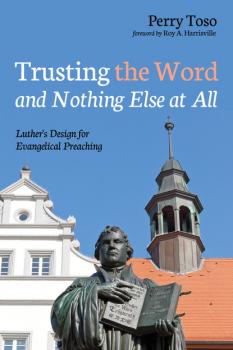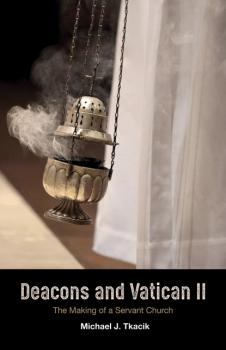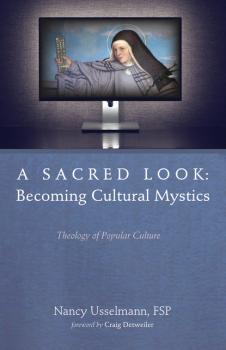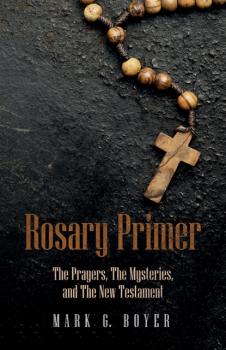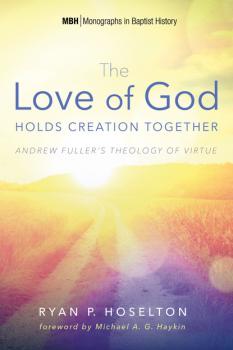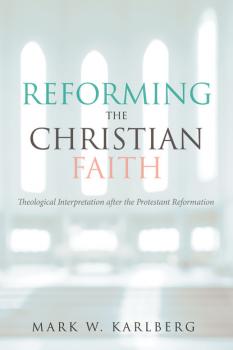ТОП просматриваемых книг сайта:
Словари
Различные книги в жанре Словари, доступные для чтения и скачиванияАннотация
Hanserd Knollys (1609-91) was a godly pastor/leader and prolific writer among the early Calvinistic Baptists of the seventeenth century. His life and ministry demonstrated a heart for the gospel of Jesus Christ. Despite imprisonment and persecution, he preached the gospel continuously and asked nonbelievers to «open the door» of their hearts to Christ. As for believers, he exhorted them to worship God «in spirit and truth,» live holy lives in both «the form and power of godliness,» and prepare and watch for the imminent second coming of Christ. As his friend Thomas Harrison said, «He was a Preacher out of the Pulpit as well as in it.» It is hoped that this summary of his life and timeless message will spur believers to reach the world with the gospel.
Аннотация
Preaching is as dangerous and as exhilarating as careening down some class IV rapids. It is dangerous because in the Old Testament, God prescribed the death penalty for preaching one's own opinion when called to speak God's Word. The pulpit is no casual or safe place! But preaching is also exhilarating because God places his creative, life-giving word right into your mouth. And though you don't know what will happen next, something that God appointed will definitely happen when you, the preacher, say what God authorizes you to say.
This book is the result of over thirty years of wrestling with God's word. It expresses some of my astonishment over how faithfully God acts through preaching that word.
Preaching is God's business. Mostly the preacher needs to get out of the way and let God do the talking. When that is the case, your hearers will tell you about it, and you will be less likely to miscarry in some of the myriad ways listed in this book.
Hopefully, Luther's design for the way preachers bring that life-giving word of promise will encourage and promote and, once again, bring the same world-changing power that was let loose in the Reformation.
This book is the result of over thirty years of wrestling with God's word. It expresses some of my astonishment over how faithfully God acts through preaching that word.
Preaching is God's business. Mostly the preacher needs to get out of the way and let God do the talking. When that is the case, your hearers will tell you about it, and you will be less likely to miscarry in some of the myriad ways listed in this book.
Hopefully, Luther's design for the way preachers bring that life-giving word of promise will encourage and promote and, once again, bring the same world-changing power that was let loose in the Reformation.
Аннотация
For centuries, evangelical Protestants and Catholics have hurled harsh epithets at each other. But that has changed dramatically in the last forty years. In 1960, many prominent evangelicals opposed John Kennedy for president because he was a Catholic. Today, Catholics and evangelicals work together on many issues of public policy. This book records one important process in this transformation. In 2004, the board of The National Association of Evangelicals (NAE–the largest representative body of evangelicals in the US) unanimously approved For the Health of the Nation as the official public policy document for its public policy efforts representing 30 million evangelicals. When scholars read this new ground-breaking document, they quickly realized there was widespread agreement between the NAE's official public policy document and the official public policy positions of American Catholics. The result was a series of annual meetings held at Georgetown University and Eastern University that brought together prominent Catholic and Evangelical scholars and public policy specialists to explore the extent of the common ground. This book reports on that dialogue–and its contribution to the increasing Catholic-evangelical cooperation.
Аннотация
Beginning with the desires of our hearts and ending with the priesthood of all believers, this series of meditations traces a path through some central concerns of the Reformation. Along this path, the authors, all faculty at Wycliffe College, engage with biblical passages which were important at that time and remain just as vital today in working out what it means to be a Christian, what it means to be the people of God. It seems appropriate, given the central place Scripture had for the reformers, that we should follow their lead in looking to the Bible in the context of the life of the church. While some church communities enthusiastically proclaim their Reformation roots, others look askance at particular reformers and seek to distance themselves from the whole of the Reformation. Yet the Reformation is not an era we in the West can simply ignore; it is bred in our bones, runs through our veins, and shapes our life together in myriad ways. These meditations are not simply historical explorations or an exercise in documenting past events. Rather, the authors grapple with questions which we continue to struggle with today–questions of faith and grace, sin and salvation, work and worship. These meditations will provoke discussion and broaden our theological understanding while guiding us into a deeper understanding of the faith.
Аннотация
The Second Vatican Council committed the Catholic Church to the service of the world when it defined the church to be missionary by nature and a sacrament pointing to and making Christ present to all. Such a vision of the church informed the restoration of the permanent diaconate within the ministerial life of the church–a vocation and participation in Holy Orders endowed precisely with the charism of service. Deacons are called and ordained to serve in the areas of sacrament, word, and charity. This work considers the place and role of deacons in the life of the contemporary church through the lens of the ecclesiological reforms of the Second Vatican Council. Via their preaching, teaching, and sacramental ministry, deacons are uniquely gifted and positioned to empower the lay faithful and advance the church's engagement with the world, commitment to ecumenism and interreligious dialogue, promotion of peace, and championing of human dignity.
Аннотация
How should a follower of Christ engage the popular media culture? By becoming a mystic! Sr. Nancy challenges Christians today to delve deep into the rich theological tradition of the church as the root and foundation for recognizing the beauty of God present in all that is truly human. The artists of popular culture sometimes unwittingly seek transcendence while grappling with some of humanity's most profound existential longings. The cultural mystics of today point out those needs of humanity in the culture's artifacts in order to enter into dialogue with those who seek something beyond what this world satisfies. The anthropological-sacramental-incarnational paradigm presented gives us this ability to take a sacred look of the culture and offer the joy of the Gospel, Christ who is the answer of all humanity's yearnings!
Аннотация
This book, a primer, serves as an introduction to a devotional practice known as the Rosary: Rosary means garden of flowers or necklace of beads. The word bead comes from an Anglo-Saxon word meaning prayer. Thus, the rosary is a garden of prayer or a necklace of prayer. After explaining how one prays the Rosary, the author presents eighty reflections on what is known as the Mysteries of the Rosary: four sets of five mysteries, each with four options for each of the twenty mysteries. Each entry contains a Scripture verse from The Christian Bible (New Testament) that illustrates the mystery under consideration, a Celebrated notation indicating when the mystery appears on the annual liturgical calendar, a short reflection, and a suggested focus for the pray-er in making a personal application of the reflection as he or she mediates on the specific decade of the rosary. Each entry leads the pray-er down a path to deeper insight into the mystery being prayed.
Аннотация
The English Baptist Andrew Fuller (1754-1815) is well-known today for his nuanced Evangelical answer to the «Modern Question» against hyper-Calvinism, founding and leading the Baptist Missionary Society, and his exemplary pastoral ministry. In his day, however, he was also esteemed as a formidable apologist for Christian orthodoxy, especially in the area of moral reasoning. Following in the footsteps of his theological mentor, Jonathan Edwards, Fuller labored to defend the moral goodness and salutary nature of Christian doctrine against the new moral philosophy of the Enlightenment. As optimism in the moral potential of human nature waxed, reliance on God for truth and virtue waned. Echoing a long tradition of classical theologians, Fuller wished to declare afresh that the love of God, as manifested in the gospel, furnished humankind's only hope for virtue, excellence, and happiness. In this concise study, Hoselton looks to recover the importance of ethical reasoning in Fuller's theology and ministry and reflect on its merit for today.
Аннотация
In every church–in every pew, it sometimes seems–there is someone who has been deeply hurt in the Catholic Church. And yet these people find themselves coming to church, wondering if anybody else can understand their experiences, their questions, and their needs. This book brings together twelve authors who describe the pain they've experienced in Catholic institutions–and the pathways they've found to healing and renewed faith. In poetry, memoir, pastoral guidance, and practical advice, these authors explore issues ranging from racism to sexual abuse to gossip and judgment. They share the prayers and practices which have helped them come to know the God Who is Love. They offer support and encouragement to all those for whom the church has been a place of harm as well as holiness.
Аннотация
Central to the mission of the church with each passing generation is the elucidation of the gospel of Christ, which is the heart of the Christian message. Witness to God's saving word in Scripture comes in response to discussions and debates arising over the course of church history. Our study highlights some of the unity and disunity found within the Reformed tradition, Reformation and modern. Beginning with the subject of the development of doctrine over the course of church history, we take up the foundational issue of biblical hermeneutics (the question of how we are to interpret the Bible). The year 2017 marks the Protestant Church's 500th anniversary (October 31). We consider, secondly, Protestantism's two leading theological principles–the formal (the doctrine of Scripture) and the material (the doctrine of justification by faith alone). In the final section, we critique departures from the teaching of historic federalism found within contemporary Reformed orthodoxy, which strikes at the very heart of what it means to be «Reformed» in theology. Crucial in this long-standing and ongoing dispute is the interpretation of the Mosaic Covenant as in some sense a «republication» of the original Covenant of Works with Adam at creation. Covenant and justification are the focal doctrines under study.

